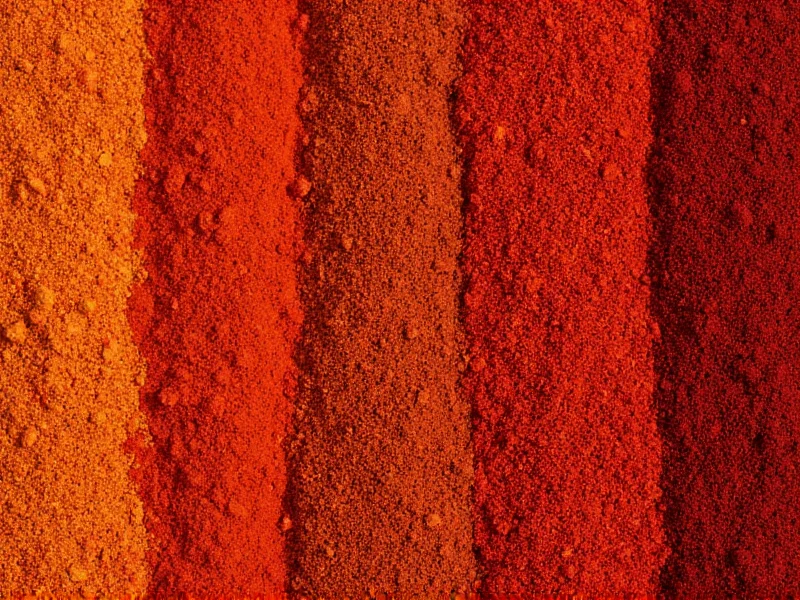When you're in the middle of preparing paella, chorizo, or smoked paprika chicken and realize you've run out of this essential spice, knowing reliable smoked paprika alternatives can save your dish. Understanding the unique flavor profile of smoked paprika—its delicate balance of sweet pepper notes with a distinctive wood-smoked depth—is crucial for selecting the right substitute that won't compromise your recipe's integrity.
Understanding Smoked Paprika's Unique Qualities
Smoked paprika, or pimentón in Spanish cuisine, undergoes a special drying process where peppers are smoked over oak fires before grinding. This creates its signature earthy, slightly sweet, and complex smoky flavor that regular paprika lacks. There are three main varieties:
- Dulce (sweet) - Mild and richly flavored
- Agridulce (bittersweet) - Moderate heat with smokiness
- Picante (spicy) - Noticeable heat with smoky notes
When seeking smoked paprika replacement options, consider whether your recipe primarily needs the smoky element, the mild pepper flavor, or the subtle heat—this determines which substitute will work best.
Top Smoked Paprika Substitutes Compared
| Substitute | Ratio | Best For | Flavor Notes | Limitations |
|---|---|---|---|---|
| Sweet paprika + liquid smoke | 1 tsp paprika + 2-3 drops liquid smoke | Recipes needing smokiness without heat | Closely mimics flavor profile | Liquid smoke can overpower if overused |
| Chipotle powder | 1/2 tsp for every 1 tsp smoked paprika | Recipes where heat complements dish | Provides smokiness and mild heat | Stronger heat may alter flavor balance |
| Smoked salt + sweet paprika | 1/2 tsp paprika + 1/4 tsp smoked salt | Dry rubs and spice blends | Subtle smokiness without liquid elements | Increases sodium content |
| Paprika + cumin | 1 tsp paprika + 1/8 tsp cumin | Hearty stews and meat dishes | Earthy depth approximation | Distinct cumin flavor alters profile |
| Smoked paprika alternatives for specific recipes | Varies by dish | Specialized cooking applications | Tailored flavor matching | Requires recipe knowledge |
Practical Substitution Guidelines for Common Recipes
Not all smoked paprika alternatives work equally well across different dishes. Consider these recipe-specific recommendations when choosing your smoked paprika replacement:
For Spanish and Mediterranean Dishes
Traditional Spanish recipes like patatas bravas or romesco sauce rely heavily on smoked paprika's distinctive flavor. For these applications, the closest smoked paprika substitute is sweet paprika combined with a minimal amount of liquid smoke (just 1-2 drops per teaspoon). Alternatively, use smoked salt with regular paprika to maintain the dry texture required in many Spanish spice blends.
For American BBQ and Grilling Applications
When making dry rubs or barbecue sauces, chipotle powder serves as an excellent smoked paprika alternative. The substitution ratio of 1:2 (chipotle to smoked paprika) works particularly well for grilled meats and smoked paprika chicken recipes. For vegetarian BBQ options, consider adding a touch of hickory smoke powder to regular paprika for that authentic grilled flavor.
For Soups, Stews, and Braises
In liquid-based dishes like goulash or bean stews, smoked paprika alternatives with liquid components integrate more smoothly. A combination of regular paprika and a small amount of liquid smoke (1/4 teaspoon per tablespoon of paprika) creates a remarkably similar flavor profile. For those avoiding liquid smoke, try adding a small piece of chipotle pepper in adobo sauce, finely minced.
Common Mistakes to Avoid with Smoked Paprika Substitutes
Even experienced cooks make these errors when substituting for smoked paprika:
- Overusing liquid smoke - This potent ingredient easily dominates other flavors. Start with just 1-2 drops per teaspoon of paprika and adjust carefully.
- Ignoring heat levels - Remember that chipotle powder brings significant heat compared to most smoked paprikas. Adjust ratios accordingly in sensitive dishes.
- Substituting at the wrong cooking stage - Add smoked paprika alternatives near the end of cooking to preserve their delicate flavors, especially liquid smoke options.
- Mixing incompatible substitutes - Don't combine multiple smoky elements (like liquid smoke AND chipotle powder) unless you want an overwhelmingly smoky result.
Creating Your Own Smoked Paprika Alternative Blend
For the most reliable smoked paprika replacement, create a custom blend based on your specific recipe needs:
- Start with 1 tablespoon of sweet paprika as your base
- Add 1/4 teaspoon of your chosen smoky element (liquid smoke, smoked salt, or chipotle powder)
- Mix thoroughly and let rest for 10 minutes to allow flavors to meld
- Taste and adjust, adding more smoky element in tiny increments
- Store any extra in an airtight container for up to two weeks
This approach gives you precise control over the smoked paprika substitute ratio and lets you tailor the intensity to your specific dish. For recipes where appearance matters, like deviled eggs or aioli, stick with dry substitutes to maintain the proper color and texture.
When Substitution Isn't Ideal
While these smoked paprika alternatives work well in most situations, some traditional recipes simply require the authentic ingredient. Dishes like authentic Spanish chorizo, certain paella variations, and specific Hungarian goulash recipes rely on smoked paprika's unique properties. In these cases, consider adjusting your menu rather than compromising the dish's integrity. If you frequently cook recipes requiring smoked paprika, keeping a small container in your spice rotation prevents future substitution emergencies.











 浙公网安备
33010002000092号
浙公网安备
33010002000092号 浙B2-20120091-4
浙B2-20120091-4